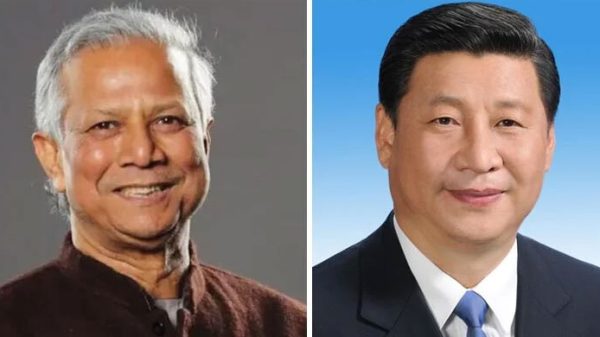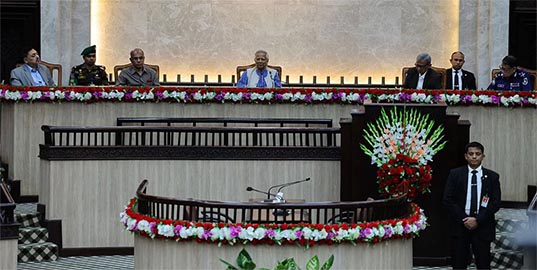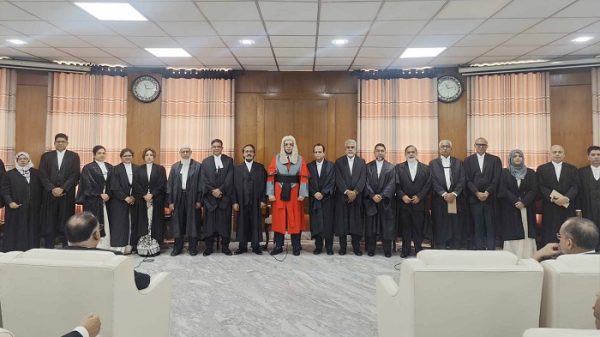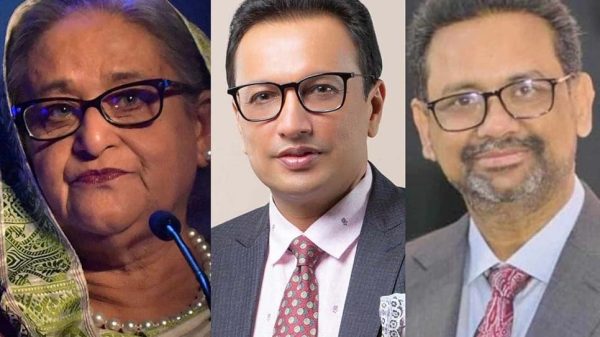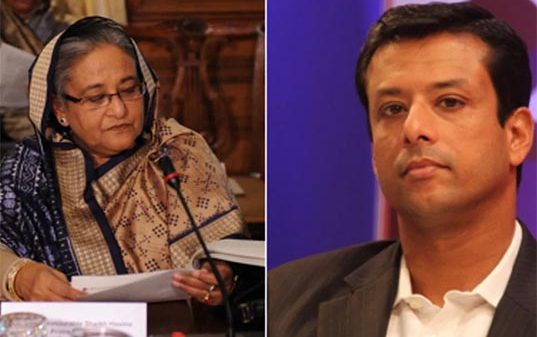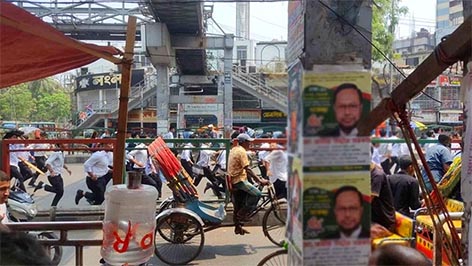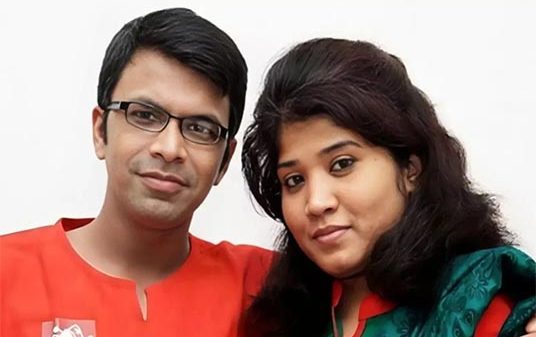Omor Ekushey Boi Mela: Gifting knowledge and making shared memories

- Update Time : Friday, 9 February, 2024, 07:25 pm
- 141 Time View
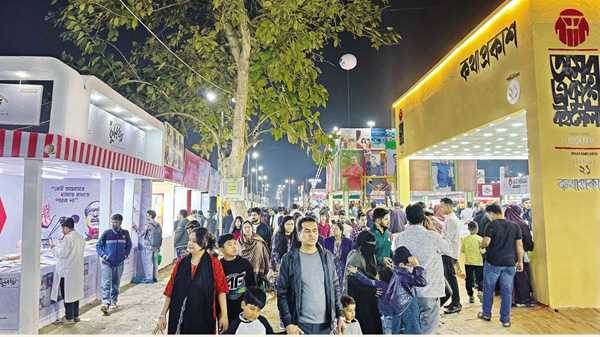
Online Desk: On the winter afternoon, as the sun casts a warm glow over the dusty grounds of the Omor Ekushey Boi Mela, a peculiar incident unfolded to the writer. He found the legendary author Humayun Ahmed as he was entering the book fair. The shock was palpable, for Humayun Ahmed had departed from this world a decade ago!
As the writer roamed the fairgrounds with the literary wizard of stories, a surge of people gathered around them. The air buzzed with excitement, everyone pushing him behind to get closer to Humayun Ahmed. The writer was terrified, having never seen this much of a crowd at the book fair.
Humayun Ahmed, sensing the impending chaos, reached into his pocket, withdrew a mysterious Chirkut, and handed it to the bewildered writer. “Open it when you finish your writing,” he said, and with that, the brief encounter concluded. It was a moment frozen in time for the writer, just like Woody Allen’s cinema ‘Midnight in Paris.’
The writer is assigned a task to write a story about the ‘gifting books as a trend’ in the festival of ‘Omor Ekushey Boi Mela’, which he doesn’t have any clue about. So, he wondered what would be more useful: to reach out to the people who had had a tremendous experience at the book fair and had a bunch of memories to tell. So here goes the story, the story of the story-lovers.
The book fair has been such an occasion that has attracted people living even miles away from Dhaka. People, especially students, used to come from distant places to buy books. Sayadul Mahmud was one of them. He reminisces about the days, saying, “My friends and I would save money for months leading up to the book fair. We started with listing books of what to buy, having the new ones with the old ones on the list. We used to take the train to come to Dhaka. The journey from Rajshahi to Dhaka was a jubilation of sorts, a festival for us residing outside the capital. Then, at the book fair, we filled our bags with books we listed. Not every time we could buy all the books we wanted, always come out with a regret, but that never stopped us from buying books next time.”
It has been quite a while since Sayadul Mahmud has been living in Dhaka, working at Somoy Television as a Joint News Editor. To him, gifting books from the book fair is special. He said, “No other gift is as tasteful as giving books as a gift.”
However, this tradition and the book fair have lost their charm. “Earlier, the world of books was different. Humayun Ahmed, Zafar Iqbal, and the great writers before them were complete heroes of the literary world. Now, when you go to the fair, the new writers who are seen in large crowds to buy their books are known faces on social media. Their books are also publicised on social media. I think there is a big difference in the readership of previous writers with them,” Sayadul Mahmud reflects.
Echoing the statements of Sayadul Mahmud, Ahnaf Tahmid, who once had the experience of buying books and having gifts from the book fair, believes that there has been a change in the book gifting tradition.
“From the age of three, I used to get books as a gift. My uncles and aunts used to buy me books or give me money to buy books from the book fair. First, I used to get books of cartoons and Gopal Bhar. And as I grew older, I started getting age-appropriate books,” he said.
Having 17 books penned under his name, including 15 as a translator and two original writings, Ahnaf Tahmid now has a different eye to see the very fair, the eyes of a writer.
“Book offerings extend to the online realm, as there is a decline in physical bookshops and the rise of online bookstores,” he said.
Talking about the discounts, he states, “Earlier, we could buy more books for 200 taka; many books cost around 70 to 100 taka. Prices have increased, that is true. The online bookshop has increased a lot; they provide 30 to 40% even more discounts, so why would anyone go to the book fair to buy books at 25% off?”
Ahnaf Tahmid believes these online bookshops might have affected the trajectory of book fairs as well as book gifting trends of the Ekushey boi mela. Sometimes, the charm of the fair lies in the aesthetically decorated stalls and the community buzz on social media, urging a return to the roots of celebrating literature.
Now, the book fair is very vibrant, melted in colours but mixed with the dusty, dry atmosphere of the fairgrounds. Seasoned journalist Shafiqul Alam, the Bureau Chief of Agence France-Presse (AFP), laments the changing landscape of the Ekushey Book Fair.
He observes a decline in the quality of offerings, with an overwhelming presence of NGO-type books from serious publishers. From his Facebook profile under the hashtag’ Dhaka Diary,’ a series of experiences based in Dhaka, Shafiqul Alam writes, “I bought hundreds of books from the fair in the past 10-15 years ever since I have got some money to splurge on books of my interest. But it is tough to find great earth-shattering or era-bending books at the fair. There are some gems. But you have to spend an awful lot of time hunting for them in hundreds of book stalls.”
In his experience, publishers like the Bangla Academy and Islami Foundation published some of the finest translations of the history and culture of South Asia. In his Facebook post, he writes, “One major reason the Ekushey Book Fair disappoints the readers is due to the preponderance of NGO-type books published by serious publishers such as UPL, Prothoma, or Agami.”
However, books as a gift have always been a pleasure experience for Auntu Das, who is a banker. He adds a touch of beauty to the book fair experience, saying, “The beauty of a Book Fair is if you ask for a book, no one says no. Everyone loves to give books. My colleagues surprised me with books.”
This sentiment encapsulates the essence of the book gifting tradition, where the joy lies not just in receiving but also in sharing the literary treasures. The tradition of gifting books at the Boi Mela has become a cherished aspect of this cultural celebration.
Anindeta Chowdhury, a freelance writer, aptly captures the sentiment, stating, “A good gift is something that never loses its charm over time. Books are what keep our imagination flowing and our thoughts nourishing. It is also often said that books are great friends. So what else can be better than to gift a friend, if not another friend? That’s why I believe in giving and receiving books as a gift.”
The act of gifting books, despite the changing dynamics, remains a timeless gesture that connects readers across generations. A hot, dusty, and tiring fairgrounds at Suhrawardy Uddyan or Bangla Academy, where the scent of freshly printed pages mingles with the hands of the readers, sometimes with the reel makers, sometimes in a jute-made bag loosely hung on the shoulder of Panjabi-worn man. Media cameras and tripods are posted in gaps where an old writer is describing his book. A guy with a khopa and a girl with a bindi are roaming romantically, holding each other’s hands with some books they gifted each other.
With that, the writer wants to conclude the story. Hence, he opens the chirkut that says, “Nothing lasts. The period of hunger swallows everything but stories. Stories remain.” These lines of Badshah Namdar were for the kings and his subjects. Maybe it meant the threads of shared memories and the timeless joy of giving and receiving the gift in the boi mela.

